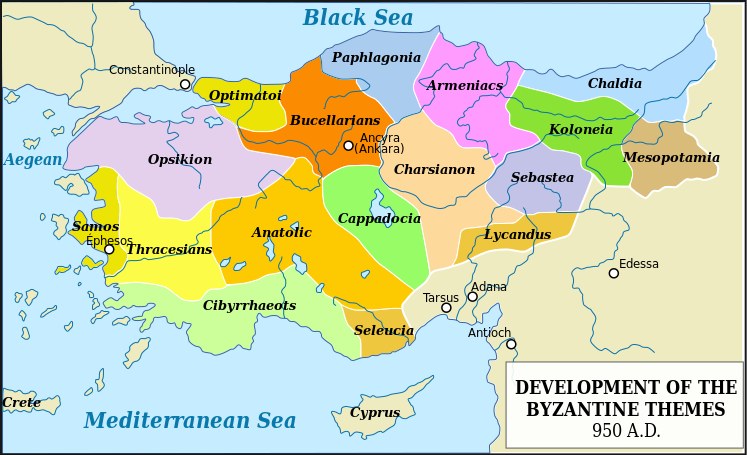950
Appearance
| Millennium: | 1st millennium |
|---|---|
| Centuries: | |
| Decades: | |
| Years: |
| 950 by topic |
|---|
| Leaders |
| Categories |
| Gregorian calendar | 950 CML |
| Ab urbe condita | 1703 |
| Armenian calendar | 399 ԹՎ ՅՂԹ |
| Assyrian calendar | 5700 |
| Balinese saka calendar | 871–872 |
| Bengali calendar | 357 |
| Berber calendar | 1900 |
| Buddhist calendar | 1494 |
| Burmese calendar | 312 |
| Byzantine calendar | 6458–6459 |
| Chinese calendar | 己酉年 (Earth Rooster) 3647 or 3440 — to — 庚戌年 (Metal Dog) 3648 or 3441 |
| Coptic calendar | 666–667 |
| Discordian calendar | 2116 |
| Ethiopian calendar | 942–943 |
| Hebrew calendar | 4710–4711 |
| Hindu calendars | |
| - Vikram Samvat | 1006–1007 |
| - Shaka Samvat | 871–872 |
| - Kali Yuga | 4050–4051 |
| Holocene calendar | 10950 |
| Iranian calendar | 328–329 |
| Islamic calendar | 338–339 |
| Japanese calendar | Tenryaku 4 (天暦4年) |
| Javanese calendar | 850–851 |
| Julian calendar | 950 CML |
| Korean calendar | 3283 |
| Minguo calendar | 962 before ROC 民前962年 |
| Nanakshahi calendar | −518 |
| Seleucid era | 1261/1262 AG |
| Thai solar calendar | 1492–1493 |
| Tibetan calendar | 阴土鸡年 (female Earth-Rooster) 1076 or 695 or −77 — to — 阳金狗年 (male Iron-Dog) 1077 or 696 or −76 |

Year 950 (CML) was a common year starting on Tuesday (link will display the full calendar) of the Julian calendar.
Events
By place
Byzantine Empire
- Arab–Byzantine War: A Hamdanid army (30,000 men) led by Sayf al-Dawla raids into Byzantine theme Anatolia. He defeats Bardas Phokas, but is then ambushed on his return and heavily defeated by Leo Phokas.[1]
Europe
- November 22 – King Lothair II dies at Turin (possibly poisoned by Berengar of Ivrea). Berengar is crowned king of Italy and imprisons Lothair's now 19-year-old widow, Adelaide for four months at Como.
- Boleslav I, duke of Bohemia, signs a peace treaty with King Otto I of the East Frankish Kingdom. He becomes his ally and is forced to resume the payment of tribute.
- Henry I, duke of Bavaria, attacks Western Hungary, taking captives and plunder. He enlarges his duchy in the wars with the Hungarians.[2]
England
- King Hywel Dda (the Good) dies after a 8-year reign in which he has established codified laws. His three sons Owain ap Hywel Dda, Rhodri ap Hywel, and Edwin ap Hywel divide Wales amongst themselves.
Oceania
- The Tu'i Tonga Empire starts to expand in the Pacific Ocean. The Tu'i Tonga kings establish the capital at Mu'a on the island of Tongatapu (approximate date).
By topic
Religion
- Page with Joshua Leading the Israelites, from the Joshua Roll, is made in Constantinople. It is now kept at the Biblioteca Apostolica Vaticana in Rome (approximate date).
Births
- June 12 – Reizei, Japanese emperor (d. 1011)
- Bernard I, German nobleman (approximate date)
- Dedo I, German nobleman (approximate date)
- Egbert, archbishop of Trier (approximate date)
- Emma of Blois, duchess of Aquitaine (d. 1003)
- Erik the Red, Norse Viking explorer (d. 1003)
- Guy of Anderlecht, Christian saint (d. 1012)
- Herbert III, Frankish nobleman (d. 995)
- Ibn Yunus, Fatamid astronomer (d. 1009)
- Lady Finella, Scottish noblewoman (d. 995)
- Lambert I, French nobleman (approximate date)
- Lothair Udo I, German nobleman (d. 994)
- Masako, Japanese empress consort (d. 1000)
- Moninho Viegas, French knight (d. 1022)
- Notker III, German Benedictine monk (d. 1022)
- Odo I (or Eudes), French nobleman (d. 996)
- Otto I, duke of Carinthia (approximate date)
- Reginar IV, French nobleman (approximate date)
- Sarolt, Grand Princess of Hungary (d. 1008)
- Soběslav, Bohemian nobleman (d. 1004)
- William I, French nobleman (approximate date)
- Wolbodo, bishop of Liège (approximate date)
Deaths
- January 15 – Wang Jingchong, Chinese general
- October 7 – Li, Chinese empress consort
- November 22 – Lothair II, king of Italy
- December 24
- Shi Hongzhao, Chinese general
- Wang Zhang, Chinese official
- Yang Bin, Chinese chancellor
- Ælfric, bishop of Ramsbury (approximate date)
- Al-Farabi, Muslim philosopher (or 951)
- Al-Qahir, Abbasid caliph (b. 899)
- Hywel Dda (the Good), king of Wales
- Li Jinquan, Chinese general (approximate date)
- Ricfried, Frankish nobleman (b. 845)
- Sunyer, count of Barcelona, Girona and Ausona
- Zoltán, Grand Prince of Hungary (approximate date)
References
- ^ Treadgold, Warren T. (1997), A History of the Byzantine State and Society, Stanford, CA: Stanford University Press, p. 489, ISBN 0-8047-2630-2.
- ^ Bóna, István (2000). The Hungarians and Europe in the 9th-10th centuries. Budapest: Historia - MTA Történettudományi Intézete, p. 27. ISBN 963-8312-67-X.
